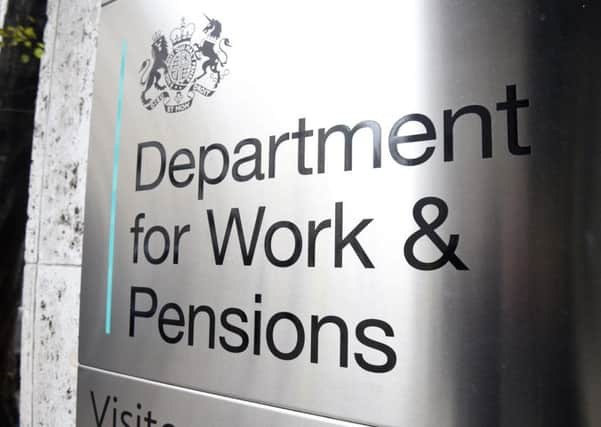Thousands in South Tyneside already on troubled Universal Credit system


The Labour party claimed this week that the new scheme, which has also been hit by delays ahead of a complete rollout, is a “vehicle for cuts”, and said it was “causing immense hardship”.
Department for Work and Pension figures show that 3,899 benefit claimants in South Tyneside had been moved onto the new Universal Credit system by last month.
Advertisement
Hide AdAdvertisement
Hide AdIt is double the number of people enrolled on it in September 2017.
Reports this week have suggested that the rollout of the Government’s flagship welfare change is now not expected to be fully operational until the end of 2023.
It was originally due to be up and running by April 2017.
Under the scheme, six different types of benefits are being rolled into one monthly payment, including jobseekers allowance and working tax credit.
Of those who had been moved to the scheme in South Tyneside last month, 31% were in employment.
Advertisement
Hide AdAdvertisement
Hide AdSpeaking in the House of Commons this week, shadow Work and Pensions Secretary Margaret Greenwood said that 3.2 million families with children could lose around £50 a week under Universal Credit.
She added: “Universal Credit, the Government’s flagship social security programme, has been beset with flaws in its design and delivery. It’s causing immense hardship for many people wherever it is rolled out.
“It is hard to believe now, but Universal Credit was designed to lift people out of poverty and smooth the transition into work to ensure that it always pays. The reality is that Universal Credit is a vehicle for cuts.”
Ms Greenwood said that confusion about the transfer between benefit systems was causing real concern for families, and leaving some facing “hunger and destitution”.
Advertisement
Hide AdAdvertisement
Hide AdWork and Pensions Secretary Esther McVey said that the rollout of Universal Credit would continue.
She said: “We will make sure we get this benefit right. You know for why? Because the genuine concerns of the people on our backbenches want to get it right.”
She added that disabled households would be £110 better off through Universal Credit, as she defended the Government’s approach.
Across Great Britain, more than 600,000 people have so far been moved to the new system, the majority of whom are not working.
Advertisement
Hide AdAdvertisement
Hide AdThe Church of England has also joined calls for reform of Universal Credit, saying the impact of the changes can be seen at its food banks across the country.
The Right Reverend Paul Butler, the Bishop of Durham and the Church lead on welfare issues, said the Government must make a “long-term commitment” to making sure the flagship system would allow recipients to feed themselves and their families properly.
He said: “We need urgent action to improve the flexibility and support for people on Universal Credit, and a long-term commitment that the social security system will provide enough income for them to afford to feed themselves and their families properly.
“Without such action, we can expect to see more and more people turning to food banks and becoming trapped in poverty.
“The problems we are seeing with Universal Credit at church-run food banks across the country must be resolved before many more people are moved on to the new benefit.”